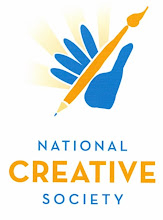It is an uncontestable fact that if you can read, sew, drive, talk, sing, dance, dive, fish, throw, catch, play an instrument, whittle, write, work, teach, cook, worship, paint, sculpt, weld, ski, build, fly, make a speech, swim, bake, compose, hunt, garden, or almost anything else you can think of, then you have had mentors in your life who have helped to shape who you are and what you have become. Your parents were your initial mentors, as were your siblings and other relatives. The teachers, coaches, and tutors who came later were also mentors. Your pastors, friends, and neighbors were, as well. So were your co-workers, supervisors, and managers at work. And the mentoring you have received throughout your life has not ended. Anytime there is a transfer of skill, information, or support from someone who has it to someone who needs it, the mentoring process is alive and well.
The term mentor originated in Greek mythology. The individual named Mentor was Odysseus's trusted counselor, and he became the guardian and teacher of his son, Telemachus, when Odysseus sailed off to the Trojan Wars. The first modern use of the term—meaning teacher or advisor—can be traced to Les Aventures de Telemaque, a real page-turner that was published in 1699. The Merriam-Webster dictionary defines a mentor as being a trusted counselor or guide. Microsoft Encarta describes the term as an experienced adviser and supporter, somebody usually older and more experienced who advises and guides a younger, less experienced person. Dictionary.com characterizes a mentor as a wise and trusted counselor or teacher and an influential senior sponsor or supporter.
Keep the history and definition of mentoring in mind as you read the following excerpt taken directly from the constitution of the National Creative Society: The purpose of the organization, as expressed in Article X of the Articles of Incorporation, shall be to enhance the ability of young people to communicate through pictures (visual arts), poetry, prose, and performance (drama, dance, and music). The National Creative Society will stress another dimension of importance to our educational systems; namely, the support and recognition of individual creative student achievement. In other words, we who believe in, belong to, and/or support the National Creative Society are, in effect, functioning as mentors to the next generation of creative individuals.
I cannot stress how important this sacred trust is. As some of you know, I am a writer. I came to this vocation as a second career after first spending 35 years performing a variety of other tasks for a living while my wife and I raised our children and built our lives together. What most people don’t realize is that I wrote my first novel when I was still in high school. It was a science fiction thriller entitled Galaxy Raiders, and it was about a spaceship full of rakish individuals, some human, who flew around in space and raided galaxies. Now, don’t get me wrong. The manuscript was a real stinker—suitable for wrapping fish and wiping up coffee spills—but the fact remains that it was a huge effort on my part as well as being the physical manifestation of my inner creative being. I gave it to my English teacher in lieu of an essay she had assigned, and when I got it back, she had graded it for grammatical correctness. My first novel was 200 hand-written pages, front-and-back. It got a C+, and it was 25 years before I tried that again.
I don’t blame my teacher for stifling my creativity. She was an overworked, underpaid, good-hearted woman who frankly had been more than generous with the C+, but as a mentor, she was an abject failure. What I needed from her was support and encouragement, just like the constitution of the National Creative Society specifies we will provide to the young people we serve. A little of either would have been sufficient to launch my second book, which by default would have had to have been better than my first. Of course, after reading that first one, maybe my old English teacher didn’t think America was ready for Galaxy Raiders II.
We must always take care to nurture the creativity in the people whose lives we impact. As parents, teachers, coaches, friends, others of significance, and National Creative Society members, we have a duty to do more than assign a C+ to the creative energies of our mentees. Not everyone has it in them to write a Broadway play, produce a Pulitzer-winning novel, or paint a picture worthy of a gallery showing. But everyone does have a spark of creativity in there somewhere that only requires some encouragement to become a flame. It is up to us as mentors to see that the fires of creativity do not go cold.
Wednesday, September 1, 2010
Subscribe to:
Post Comments (Atom)

No comments:
Post a Comment